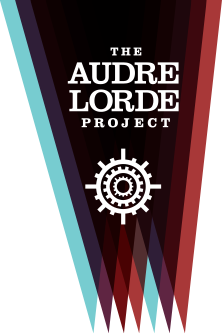Interview with Trishala Deb of the Audre Lorde Project
Interviewed for Network News Online by Diana Pei Wu
What are some of the lessons learned from the last year’s mobilizations?
Some of the lessons from last year, and looking forward to the next year, are how important it is for some folks within the broad immigrant rights movement to stand firm on demands for legalization for all people – to lift up options for legalization for all undocumented people and not just a fraction of them
One of the things that I am anxious about is that with the election of the Democratic House and Senate, we actually are going to have a harder time fighting the negative welfare reform compromises that were passed the last spring. What’s going to be passed in Congress is going to be less reactionary, so that it’s harder to explain to our communities why the proposed reform is still not going to be good for the majority of our communities.
Where does the immigrant rights movement intersect and overlap with the LGBTQ rights movement?
A lot of the proposed legislation and the national debate focus on who is likely to be representative of and who are the “good” immigrants – leaving out the people who are the poorest, the undocumented, the trans and LGBT folks, the folks from some of the countries that are geographically not likely to get attention. In our experience in New York, folks from continental Africa and the Caribbean tend to get the shaft on legal options. And in that list are also people who are HIV positive. So we at Audre Lorde Project keep those communities and sub-communities at the center as we build community.
Second, about the family values that we want to put out – and there are many people who will benefit and communities who will benefit from family reunification clauses. It is important that we don’t center our understanding on immigration policy just through family – and instead center on an idea of family and community that includes low-wage workers of all sexual orientations, genders, refugees, migrant folks, LGBT folks. It doesn’t have to be a polarized debate – but another way to remember that it’s just not families in that limited definition.
Third, to lift up that the neoconservative strategies around immigrant workers and in the context of globalization are connected. For instance, the religious strategy of isolating LGBT communities emerges out of this. But the challenge is to include both communities at the same time when the political bloc takes back power for all vulnerable people.
And finally, to recognize there’s not a single community that doesn’t include LGBT members – though how we call ourselves may differ from country to country and language to language.
Is there anything else you want to share about ALP with NNIRR members through Network News Online for this coming year?
We need to do a better job of taking advantage of the mobilizations – building relations with other groups in the city and opening up more spaces where we’re talking about transphobia and homophobia in our communities and how that connects with other issues.
For instance, we’re excited about the workshop we’re helping to design that connects globalization and migration policy with domestic policy and the war on terrorism. Especially in multi community conversations about immigration, where there are people who are present who aren’t immigrants, we need to take seriously the tension between people of color who are and are not immigrants on the immigration debate in the United States.
And to feel out what our members said, that they felt there were contradictions of supporting immigrant workers when there are already a lot of people who are poor and out of work. Instead of dismissing it, we started to talk about globalization – that creates this set of conditions and contradictions that put all workers at risk.
Trishala Deb is the Program Coordinator of the Audre Lorde Project’s Training and Resource Center. Trishala was interviewed in February by Diana Wu, director of NNIRR’s BRIDGE education and leaderdership training program.


